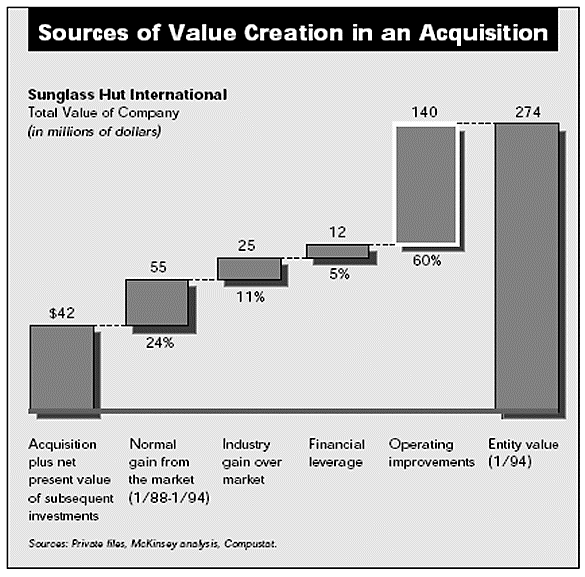Service objectives
The following list represents the Key Service Objectives (KSO) for the Appleton Greene Soulful Leadership service.
Reimagining Leadership
 The purpose of this service objective is to help companies reimagine the role of leaders and the goals of leadership. Today’s organizations are fascinated with leaders and leadership. So it is not surprising that the two words have become imbued with meanings and interpretations that actually distort their fundamental nature and purpose. For instance, lately, leadership has become more of a morality tale. There is excessive concern with the virtuous aspects of leaders – empowerment, authenticity and charisma – and correspondingly less concern with what leaders should be doing. There is also excessive attention paid to the personality aspects of leaders – personality tests and profiles – and less attention to how work actually gets done, and what leaders need to do to further existing histories and write new chapters for future histories of their organizations. Consequently, it is important to help attendees re-imagine leaders and leadership. Leaders are not necessarily heroes. Frequently, they are ordinary people who are asked to play a role for a finite amount of time. During this time, they are charged with moving their organizations forward toward some desired strategic destination. The personal assets that leaders bring forth to navigate these leadership journeys are critical, and will form the core of reimagining of leadership and leadership roles. In keeping with the essence of the program, this reimagining will be fueled by appropriate examples from poetry and literature. Several examples of real life leaders will be provided to help attendees acquire a different perspective on who leaders are and what their roles should be. This will set the stage for the service objectives that follow.
The purpose of this service objective is to help companies reimagine the role of leaders and the goals of leadership. Today’s organizations are fascinated with leaders and leadership. So it is not surprising that the two words have become imbued with meanings and interpretations that actually distort their fundamental nature and purpose. For instance, lately, leadership has become more of a morality tale. There is excessive concern with the virtuous aspects of leaders – empowerment, authenticity and charisma – and correspondingly less concern with what leaders should be doing. There is also excessive attention paid to the personality aspects of leaders – personality tests and profiles – and less attention to how work actually gets done, and what leaders need to do to further existing histories and write new chapters for future histories of their organizations. Consequently, it is important to help attendees re-imagine leaders and leadership. Leaders are not necessarily heroes. Frequently, they are ordinary people who are asked to play a role for a finite amount of time. During this time, they are charged with moving their organizations forward toward some desired strategic destination. The personal assets that leaders bring forth to navigate these leadership journeys are critical, and will form the core of reimagining of leadership and leadership roles. In keeping with the essence of the program, this reimagining will be fueled by appropriate examples from poetry and literature. Several examples of real life leaders will be provided to help attendees acquire a different perspective on who leaders are and what their roles should be. This will set the stage for the service objectives that follow.
Soulful Leadership
 This service objective will help lay a foundation for clients to understand the dynamics and DNA of soulful leadership. Key concepts and ideas that give Soulful Leadership its unique character will be presented and discussed. The discussion will be concrete, not abstract. Specific examples from the day to day lives of organizations, involving routine and non-routine decisions, like job promotions, use of robots instead of human beings, and sponsoring community programs in tough economic times will be used to establish the idea and practice of soulful leadership. Specific factors enabling or inhibiting the practice of Soulful Leadership will also be discussed. These factors will be drawn from three main categories – who the leader is, how the leader thinks, and how the leader acts. Consideration will also be given to the environment comprising of communities, cultures, and the planet to illustrate how soulful leadership can be conceived and implemented. In keeping with the essence of the program, the ideas and practice concerning Soulful Leadership will be appropriately supported and illustrated with examples from poetry and literature. Examples of real life leaders who practice, or have practiced Soulful Leadership when they were active will be used to inspire and inform program attendees. Lastly, this foundation will serve as the basis for further exploring key dimensions of Soulful Leadership in the service objectives that follow.
This service objective will help lay a foundation for clients to understand the dynamics and DNA of soulful leadership. Key concepts and ideas that give Soulful Leadership its unique character will be presented and discussed. The discussion will be concrete, not abstract. Specific examples from the day to day lives of organizations, involving routine and non-routine decisions, like job promotions, use of robots instead of human beings, and sponsoring community programs in tough economic times will be used to establish the idea and practice of soulful leadership. Specific factors enabling or inhibiting the practice of Soulful Leadership will also be discussed. These factors will be drawn from three main categories – who the leader is, how the leader thinks, and how the leader acts. Consideration will also be given to the environment comprising of communities, cultures, and the planet to illustrate how soulful leadership can be conceived and implemented. In keeping with the essence of the program, the ideas and practice concerning Soulful Leadership will be appropriately supported and illustrated with examples from poetry and literature. Examples of real life leaders who practice, or have practiced Soulful Leadership when they were active will be used to inspire and inform program attendees. Lastly, this foundation will serve as the basis for further exploring key dimensions of Soulful Leadership in the service objectives that follow.
Inner Awakening
 The purpose of this service objective is to help clients focus on a vital, but neglected aspect of successful leadership. Traditional leadership training has paid scant attention to the inner aspects of leaders. It has focused instead on leaders’ heads, attempting to make them smarter and instilling in them relevant task related skills and competencies. It has also focused on designing appropriate incentives and regulations for promoting the “right” kind of behavior. But in today’s content rich world, these types of competencies can be readily purchased and don’t offer a sustainable source of competitive advantage. Neither can a focus on incentives and work processes lead to engaging and satisfying work places. What can’t be bought, and what differentiates successful leaders from the not so successful ones is what lies within them. The commitment, the caring, the passion, the discipline, the dedication to constantly learn, grow, and become a better human being, and therefore a better leader, can’t be bought. But it can be nurtured through an inner awakening, which motivates leaders to understand who they are, so they can make not just smarter, but also wiser, more enlightened choices. This inner awakening is the bedrock of Soulful Leadership. In its absence leadership would remain a vehicle for the self-serving interests of the powerful and privileged not the platform it should be for the wellbeing and prosperity of the many. Here again, as in previous service objectives – and the ones to follow – the dynamics and benefits of inner awakening will be illustrated and supported by examples from immortal poems and literature, and from case-studies of past and current leaders.
The purpose of this service objective is to help clients focus on a vital, but neglected aspect of successful leadership. Traditional leadership training has paid scant attention to the inner aspects of leaders. It has focused instead on leaders’ heads, attempting to make them smarter and instilling in them relevant task related skills and competencies. It has also focused on designing appropriate incentives and regulations for promoting the “right” kind of behavior. But in today’s content rich world, these types of competencies can be readily purchased and don’t offer a sustainable source of competitive advantage. Neither can a focus on incentives and work processes lead to engaging and satisfying work places. What can’t be bought, and what differentiates successful leaders from the not so successful ones is what lies within them. The commitment, the caring, the passion, the discipline, the dedication to constantly learn, grow, and become a better human being, and therefore a better leader, can’t be bought. But it can be nurtured through an inner awakening, which motivates leaders to understand who they are, so they can make not just smarter, but also wiser, more enlightened choices. This inner awakening is the bedrock of Soulful Leadership. In its absence leadership would remain a vehicle for the self-serving interests of the powerful and privileged not the platform it should be for the wellbeing and prosperity of the many. Here again, as in previous service objectives – and the ones to follow – the dynamics and benefits of inner awakening will be illustrated and supported by examples from immortal poems and literature, and from case-studies of past and current leaders.
Sacrifice Framework
 The purpose of this objective is to emphasize the importance of one of the most vital elements of soulful leadership. Leaders are appointed to act; doing nothing is not an action. The bulk of leader’s actions revolve around generating forward momentum for their organizations and themselves. This forward momentum is usually toward what leaders – and hopefully, the organization – considers a better future. But each time leaders act, they have to sacrifice something, or someone, or someone’s interests. For example, leaders can sacrifice people, resources (which includes the planet), or some aspect of themselves; usually it’s some combination of the three. It is impossible not to do so, because pleasing and satisfying everybody is not feasible. Since who to sacrifice, how much, and when are not trivial decisions, Soulful Leadership requires leaders to be guided by an inner awakening so that no one group of people or resources are sacrificed disproportionately for the gain of a privileged few. Historically, leaders have often used their power and privilege to sacrifice others – including resources – for their own wellbeing and prosperity. But Soulful Leadership sees it differently. It considers leadership as a privilege of a different kind, as a force of doing good, and a platform for increasing the wellbeing and prosperity of the greater many. The discussion on the sacrifice framework will also be illustrated and supported by examples from poetry and literature, and from case-studies of leaders who have exhibited an uncommon awareness of the sacrifices inherent in their own decisions, and modeled exemplary behaviors concerning the sacrifice framework.
The purpose of this objective is to emphasize the importance of one of the most vital elements of soulful leadership. Leaders are appointed to act; doing nothing is not an action. The bulk of leader’s actions revolve around generating forward momentum for their organizations and themselves. This forward momentum is usually toward what leaders – and hopefully, the organization – considers a better future. But each time leaders act, they have to sacrifice something, or someone, or someone’s interests. For example, leaders can sacrifice people, resources (which includes the planet), or some aspect of themselves; usually it’s some combination of the three. It is impossible not to do so, because pleasing and satisfying everybody is not feasible. Since who to sacrifice, how much, and when are not trivial decisions, Soulful Leadership requires leaders to be guided by an inner awakening so that no one group of people or resources are sacrificed disproportionately for the gain of a privileged few. Historically, leaders have often used their power and privilege to sacrifice others – including resources – for their own wellbeing and prosperity. But Soulful Leadership sees it differently. It considers leadership as a privilege of a different kind, as a force of doing good, and a platform for increasing the wellbeing and prosperity of the greater many. The discussion on the sacrifice framework will also be illustrated and supported by examples from poetry and literature, and from case-studies of leaders who have exhibited an uncommon awareness of the sacrifices inherent in their own decisions, and modeled exemplary behaviors concerning the sacrifice framework.
Implementation Dynamics
New narratives and ideas benefit leaders and the organizations they lead only when they are implemented. Merely talking about them accomplishes little. Consequently, the purpose of this objective is to present and discuss a three-step framework for disseminating the idea and practice of Soulful Leadership throughout the organization, so it becomes an integral part of the organization’s operating culture. The first step in the framework is to “Think about it.” This step enables attendees to reflect individually on the various aspects of Soulful Leadership and on their own equation with it, so they can determine where they could adopt and embrace it more fully. The second step, “Talk about it,” transfers this individual assessment to a group discussion on how and where Soulful Leadership can and should be implanted. The third step, “Act on it,” translates the brainstorming from step 2 to an action agenda, with the emphasis being on exhibiting behavior that will lead to Soulful Leadership becoming an integral part of the operating culture and DNA of the organization. Collectively, the three steps should bring about a greater awareness, appreciation, and implementation of the ideas and practice of Soulful Leadership.
Technology
 Technology is all pervasive and omnipresent in today’s world, and is radically reshaping all aspects of work and life from everyday essentialities of cooking, cleaning, transportation, and security to discretionary needs, such as healthcare, education, and entertainment. In the business world, technology is the backbone of the operations of virtually every business, and is also helping shape business strategy, and transforming business, revenue, and growth models. There was a time when technology was equated with the IT department and the hardware that sat on our desks and the software that helped us operate the hardware. Today, there is scarcely a department in any business that doesn’t use technology; even HR departments uses technology for managing and developing the human potential of their respective organizations. In fact, according to Gartner, marketing, not IT, will be the largest buyer of technology by 2018. Additionally, technology is also ubiquitous and essential to the day to day lives of typical customers. Cars today have more code than the computers of a few years ago…and there is no turning back. We live in an era of digital disruption, an era in which technology simultaneously creates and destroys customer value and customer experience. Consequently, it is important for companies to embrace technology and leverage it so that the value and experience they are providing to customers doesn’t become obsolete.
Technology is all pervasive and omnipresent in today’s world, and is radically reshaping all aspects of work and life from everyday essentialities of cooking, cleaning, transportation, and security to discretionary needs, such as healthcare, education, and entertainment. In the business world, technology is the backbone of the operations of virtually every business, and is also helping shape business strategy, and transforming business, revenue, and growth models. There was a time when technology was equated with the IT department and the hardware that sat on our desks and the software that helped us operate the hardware. Today, there is scarcely a department in any business that doesn’t use technology; even HR departments uses technology for managing and developing the human potential of their respective organizations. In fact, according to Gartner, marketing, not IT, will be the largest buyer of technology by 2018. Additionally, technology is also ubiquitous and essential to the day to day lives of typical customers. Cars today have more code than the computers of a few years ago…and there is no turning back. We live in an era of digital disruption, an era in which technology simultaneously creates and destroys customer value and customer experience. Consequently, it is important for companies to embrace technology and leverage it so that the value and experience they are providing to customers doesn’t become obsolete.
We use technology as if it were a common noun, it is anything but that. Cloud computing is technology, as is a common app, as is virtual reality, and as is IoT (Internet of things). However, each of them are a source of differentiated customer value and the basis of a differentiated customer experience. Which is why as the world of technology expands and dominates businesses and people’s lives, the all important question of value innovation will become even more relevant. As Steve Jobs likes to remind technology fanatics, “Smart companies don’t push technologies on unsuspecting customers, they work backwards. They begin by asking what great value and experiences they should deliver customers and then ask their engineers and designers to develop and deliver the targeted value and experience.” The number of trends that characterize technology – robotics, AI, nanotechnology, etc. – are too numerous to enumerate and discuss here. What is important to note though is that the world of technology is constantly morphing and converging, making it even more demanding for companies to stay connected with the customer and tackle issues related to value innovation.
Healthcare
 Like education, entertainment, and a host of other industries, healthcare is in the throes of radical transformation. The industry is being asked to cater to exponentially increasing demand, which is both varied and complex, without passing on ever increasing costs to the end user. Not surprising therefore, that for several years now, the pharma companies have been urging themselves to migrate from being pill centric to becoming patient centric. Hospitals and other healthcare providers have been seriously rethinking their business models and moving away from treating diseases to championing wellness, and payers have been focused on pharmacoeconomics to balance costs and relative efficacy of alternate treatments. The number of moving parts grabbing the industry’s attention have increased dramatically in the past few years. New technologies, ranging from electronic health records, and digital tools for supporting diagnosis to telemedicine and robotics are being embraced aggressively to cater to the burgeoning demand. The changing demographics of the population, especially the needs of the elderly and the terminally ill, are posing fresh caregiving challenges, which are not easy to solve. Costs show no signs of abating, even as voices in support of individualized medicine are getting louder. Not only are new specialty drugs highly costly to produce, new viruses, like the Zika virus, and old standards like the flu, which have adapted and become more resistant to commonly available antibiotics, are stressing the system constantly, diminishing the ability of the healthcare system and industry to provide real, meaningful, timely, and tangible value at an affordable price.
Like education, entertainment, and a host of other industries, healthcare is in the throes of radical transformation. The industry is being asked to cater to exponentially increasing demand, which is both varied and complex, without passing on ever increasing costs to the end user. Not surprising therefore, that for several years now, the pharma companies have been urging themselves to migrate from being pill centric to becoming patient centric. Hospitals and other healthcare providers have been seriously rethinking their business models and moving away from treating diseases to championing wellness, and payers have been focused on pharmacoeconomics to balance costs and relative efficacy of alternate treatments. The number of moving parts grabbing the industry’s attention have increased dramatically in the past few years. New technologies, ranging from electronic health records, and digital tools for supporting diagnosis to telemedicine and robotics are being embraced aggressively to cater to the burgeoning demand. The changing demographics of the population, especially the needs of the elderly and the terminally ill, are posing fresh caregiving challenges, which are not easy to solve. Costs show no signs of abating, even as voices in support of individualized medicine are getting louder. Not only are new specialty drugs highly costly to produce, new viruses, like the Zika virus, and old standards like the flu, which have adapted and become more resistant to commonly available antibiotics, are stressing the system constantly, diminishing the ability of the healthcare system and industry to provide real, meaningful, timely, and tangible value at an affordable price.
Consequently, the industry is under greater public and legislative scrutiny. As more health care data, particularly financial, such as physician fees, comparison of insurance plan premiums, and payments by drug and medical device manufacturers to physicians and other care providers, becomes public, the power of the public to influence important medical policies and decisions is increasing, eroding the power and sole authority status of traditional gatekeepers, like physicians and hospitals. As the focus of the industry shifts from treatment to prevention and wellness, from individual health to social and community health, issues related to value innovation – customer value and customer experience – will become even more important. The word customer is used deliberately, because not everybody the healthcare industry will and should engage will be a patient. The system will need to experiment with new models of wellness, treatment, and payment to meet customer needs, so increasing healthcare value, which is both relevant and timely, can be delivered unaccompanied by soaring costs.
Banking & Financial Services
 In the next three to five years, banking and financial services is likely to be disrupted more than any other sector. The nature of money is changing, as is the world of payments. It will not be cash, currency, and coins as we know it today. A host of innovations, like digital wallets, blockchains, cryptocurrencies, automation of cash and money flows, payment embedded in the Internet of Things, where Toyota cars pay for gas, and Nespresso machines pay for coffee, and Electrolux fridges pay for milk delivery are already beginning to rear their heads. In this fragmented environment where cash will largely be invisible and payments highly distributed, often in closed-loops, third party institutions like banks and financial services that currently handle cash and payment transactions will have to rethink their role and purpose; they won’t have an option.
In the next three to five years, banking and financial services is likely to be disrupted more than any other sector. The nature of money is changing, as is the world of payments. It will not be cash, currency, and coins as we know it today. A host of innovations, like digital wallets, blockchains, cryptocurrencies, automation of cash and money flows, payment embedded in the Internet of Things, where Toyota cars pay for gas, and Nespresso machines pay for coffee, and Electrolux fridges pay for milk delivery are already beginning to rear their heads. In this fragmented environment where cash will largely be invisible and payments highly distributed, often in closed-loops, third party institutions like banks and financial services that currently handle cash and payment transactions will have to rethink their role and purpose; they won’t have an option.
Paradoxically, as the reach of technology grows and innovations radically transform the structure of banking and financial services, customers will increasingly want to be treated as unique individuals, and not as a nameless, faceless statistic in the company’s database. Customizing customer value and customer experiences will be at a premium, making value innovation even more critical. We are already getting a glimpse of this with the rise of big data and analytics. Banks and financial service companies are pursuing micro-segmentation zealously so they can convince their customers that they do care about them as individuals. Lastly, with the convergence of financial instruments, cash, credit, savings, investments, etc., customer loyalties will either be distributed across a number of players, or highly concentrated with one or two. In such an environment, value innovation will become even more critical for customer acquisition and retention, and therefore for the long term well-being of the organization.
Education
 Even though all forms and levels of education are changing, this section will focus only on higher education (bachelor’s degree and above) delivered by colleges and universities throughout the world. Several factors are turning higher education on its head. On the demand side, the demographics of students, especially in terms of age, income, and diversity has changed and is unlikely to reverse. Today’s students are likely to be older, are more likely to come from poorer families, and from ethnic backgrounds where parents may not have gone to college. They also have different attitudes and expectations, notably, they have an unrealistically high opinion of their own abilities, and are not merely interested in learning – they want a variety of entertaining experiences during their tenure at college. The changing mix and experience expectations of students will continue to pose challenges for colleges and universities. Additionally, not all students want to be full time students, or be physically present in the class room. Part-time, evening, and weekend students are definitely on the rise, as are those who want to obtain their degree in digital and online forums.
Even though all forms and levels of education are changing, this section will focus only on higher education (bachelor’s degree and above) delivered by colleges and universities throughout the world. Several factors are turning higher education on its head. On the demand side, the demographics of students, especially in terms of age, income, and diversity has changed and is unlikely to reverse. Today’s students are likely to be older, are more likely to come from poorer families, and from ethnic backgrounds where parents may not have gone to college. They also have different attitudes and expectations, notably, they have an unrealistically high opinion of their own abilities, and are not merely interested in learning – they want a variety of entertaining experiences during their tenure at college. The changing mix and experience expectations of students will continue to pose challenges for colleges and universities. Additionally, not all students want to be full time students, or be physically present in the class room. Part-time, evening, and weekend students are definitely on the rise, as are those who want to obtain their degree in digital and online forums.
On the supply side the number of institutions offering degrees, especially those popular with recruiters, like MBA, have increased dramatically. In India, for example, in the 1980s there were only five major MBA degree granting colleges. Today, virtually every mid-to-large sized city can boast of colleges that grant an MBA degree. Privately owned colleges and universities that operate for profit, and smaller community colleges that cater to students in specific geographies has also increased. However, quality of education has not kept pace with the proliferation of institutions globally; the biggest constraints being funding, quality of trained teachers, and the nature of the curriculum. Several colleges and universities are experimenting with technology in the class room to augment and boost student and teaching experience, with the hope of raising the quality and relevance of education delivered. More students participate in MOOCs, distance learning through online courses, and hybrid formats. While the jury is still out on whether technology will help bring greater student engagement and improve the quality of learning, questions concerning relevance of current higher education to the needs and demands of the changing workplace are being asked more frequently. Employers don’t believe colleges and universities are turning out the kinds of candidates they need, which is why globally, many companies, and governments, are investing in their own training and education programs. In a scenario like this an understanding and application of value innovation with its focus on customer value and experience is critical, if the system is to create positive value and experiences for all stakeholders – students, teachers, employers, and those providing the funds.
Entertainment
 There was a time when entertainment took place at fixed times, in fixed formats, and at fixed venues – TV, radio, movie theaters, jazz clubs, music concerts, and comedy clubs. Customers took what they were offered and if they missed their favorite show they kicked cans and tried finding solace in profanity. That was truly a long time ago, the entertainment industry unrecognizable today. It changes every time a new song is released – Uptown Funk; every time a new video is released – Gangnam Style; every time a new genre takes off – reality TV, hip hop rap. Today, entertainment is truly a multidimensional, multidirectional collaboration between content producers, content providers and content consumers. Any and every content can be entertainment; the old brick walls between information, education, and pure entertainment have crumbled. TED talks are entertainment, as are improve comedy shows, as are funny home videos on YouTube. Further, this content can be consumed anywhere, anytime, on any screen, frequently without payment. Additionally, the content is often consumed in ways the originator had not intended – Harry Potter theme parks and Lego blocks, or Star Wars light sabre toys, or a mash up of history and science fiction as video games.
There was a time when entertainment took place at fixed times, in fixed formats, and at fixed venues – TV, radio, movie theaters, jazz clubs, music concerts, and comedy clubs. Customers took what they were offered and if they missed their favorite show they kicked cans and tried finding solace in profanity. That was truly a long time ago, the entertainment industry unrecognizable today. It changes every time a new song is released – Uptown Funk; every time a new video is released – Gangnam Style; every time a new genre takes off – reality TV, hip hop rap. Today, entertainment is truly a multidimensional, multidirectional collaboration between content producers, content providers and content consumers. Any and every content can be entertainment; the old brick walls between information, education, and pure entertainment have crumbled. TED talks are entertainment, as are improve comedy shows, as are funny home videos on YouTube. Further, this content can be consumed anywhere, anytime, on any screen, frequently without payment. Additionally, the content is often consumed in ways the originator had not intended – Harry Potter theme parks and Lego blocks, or Star Wars light sabre toys, or a mash up of history and science fiction as video games.
The proliferation of devices and venues, traditional TV sets, smart TVs, smart phones, tablets, TV screens at airports, in bars, lounges, and waiting areas, such as hospital and hotel lobbies, accelerates the change the industry and customers are experiencing. Even buildings and walls can be a delivery channel for entertainment – a trip to the Ginza district in Japan, or to Times Square in New York can attest to that. Add to that the ability to watch anything asynchronously and you have an entertainment landscape that rarely stands still. Take the example of Hulu. It was born out of the YouTube category, where people flocked for quick snippets of video. Now, however, a whopping 73 percent of Hulu-goers use the service specifically for watching television shows. In this panoramic landscape it is equally difficult to say what competencies qualify a company to be called an entertainment company. Ostensibly, Microsoft, makers of Xbox is an entertainment company. Hallmark started off as a greeting card company, but is an entertainment company. Netflix started off as a DVD retailer, but is an entertainment company, as is Amazon. In this dynamic environment, of constantly evolving technologies and content, where entertainment is the outcome of active collaboration between content producers, device manufacturers, and delivery companies (Comcast), and the meaning and value of which is co-created with customers, who pick the time, venue, and vehicle of consumption, value innovation – creating, delivering, and innovating the right value and experience for the right customer at the right time takes on even greater importance.
Bronze Service

Monthly cost: USD $1,500.00
Time limit: 5 hours per month
Contract period: 12 months
Bronze service includes:
01. Email support
02. Telephone support
03. Questions & answers
04. Professional advice
05. Communication management

SERVICE DESCRIPTION
The Bronze Client Service (BCS) for Soulful Leadership provides clients with an entry level option and enables client contacts to become personally acquainted with Dr. Bhalla over a sustainable period of time. We suggest that clients allocate up to a maximum of 5 Key Employees for this service. Your Key Employees can then contact the consultant via email, whenever they feel that they need specific advice or support in relation to the consultant’s specialist subject. The consultant will also be proactive about opening and maintaining communications with your Key Employees. Your Key Employees can list and number any questions that they would like to ask and they will then receive specific answers to each and every query that they may have. Your Key Employees can then retain these communications on file for future reference. General support inquiries will usually receive replies within 48 hours, but please allow a period of up to 10 business days during busy periods. The Bronze Client Service (BCS) enables your Key Employees to get to know their designated Appleton Greene consultant and to benefit from the consultant’s specialist skills, knowledge and experience.
Bronze Service

Monthly cost: USD $1,500.00
Time limit: 5 hours per month
Contract period: 12 months
Bronze service includes:
01. Email support
02. Telephone support
03. Questions & answers
04. Professional advice
05. Communication management

SERVICE DESCRIPTION
The Bronze Client Service (BCS) for Soulful Leadership provides clients with an entry level option and enables client contacts to become personally acquainted with Dr. Bhalla over a sustainable period of time. We suggest that clients allocate up to a maximum of 5 Key Employees for this service. Your Key Employees can then contact the consultant via email, whenever they feel that they need specific advice or support in relation to the consultant’s specialist subject. The consultant will also be proactive about opening and maintaining communications with your Key Employees. Your Key Employees can list and number any questions that they would like to ask and they will then receive specific answers to each and every query that they may have. Your Key Employees can then retain these communications on file for future reference. General support inquiries will usually receive replies within 48 hours, but please allow a period of up to 10 business days during busy periods. The Bronze Client Service (BCS) enables your Key Employees to get to know their designated Appleton Greene consultant and to benefit from the consultant’s specialist skills, knowledge and experience.
Silver Service

Monthly cost: USD $3,000.00
Time limit: 10 hours per month
Contract period: 12 months
Bronze service plus
01. Research analysis
02. Management analysis
03. Performance analysis
04. Business process analysis
05. Training analysis

SERVICE DESCRIPTION
The Silver Client Service (SCS) for Soulful Leadership provides more time for research and development. If you require Dr. Bhalla to undertake research on your behalf, or on behalf of your Key Employees, then this would understandably require more time and the Silver Client Service (SCS) accommodates this. For example, you may want your consultant to undertake some research into your management, performance, business, or training processes, with a view towards providing an independent analysis and recommendations for improvement. If any research and development, or business analysis is required, then the Silver Client Service (SCS) is for you.
Gold Service

Monthly cost: USD $4,500.00
Time limit: 15 hours per month
Contract period: 12 months
Bronze/Silver service plus
01. Management interviews
02. Evaluation and assessment
03. Performance improvement
04. Business process improvement
05. Management training

SERVICE DESCRIPTION
The Gold Client Service (GCS) for Soulful Leadership is intended for more detailed evaluation and assessment, that may require your Key Employees to have monthly meetings or interviews with Dr. Bhalla. These meetings and interviews can be conducted over the telephone, Skype, or by video conference if required. The consultant can also attend your business premises, an Appleton Greene office, or another mutually beneficial location, but please note that clients are responsible for the costs of any disbursements separately, including travel and accommodation. This service enables you to integrate the specific skills, knowledge and experience of your designated consultant into your Key Employee management team. The Gold Client Service (GCS) can also incorporate training workshops, business presentations and external meetings with customers, suppliers, associations, or any other business-related stakeholders.
Platinum Service

Monthly cost: USD $6,000.00
Time limit: 20 hours per month
Contract period: 12 months
Bronze/Silver/Gold service plus
01. Project planning
02. Project development
03. Project implementation
04. Project management
05. Project review

SERVICE DESCRIPTION
The Platinum Client Service (PCS) for Soulful Leadership is our flagship service and will be required if you need Dr. Bhalla to facilitate the planning, development, implementation, management, or review of a particular project relating to his specialist subject, which would obviously require more time and dedication. This service enables you to reserve up to 12.5% of the consultant’s working month and provides a more hands-on service as and when required. If you need more time than this, then this can always be arranged, subject of course to the consultant’s ongoing availability. The benefit of having an external consultant involved in projects is they provide an independent perspective and are not influenced by internal politics, day-to-day responsibilities, or personal career interest. They provide objectivity, specific knowledge, skills and experience and will be entirely focused upon the tasks at hand. The Platinum Client Service (PCS) will provide your organization with a valuable resource as and when you need it.
Benefits
Management
- Corporate image
- Soulful workplace
- Socially responsible
- Employer reputation
- Employee trust
- Happier employees
- Loyal customers
- Competitive advantage
- Higher growth
- Higher profitability
Human Resources
- Talent management
- Employee trust
- Meaningful work
- Job satisfaction
- Committed workforce
- Happier employees
- Easier recruitment
- Engaged employees
- Less turnover
- Soulful workplace
Customer Service
- Customer delight
- Customer satisfaction
- Customer loyalty
- Customer trust
- Positive recommendations
- Higher acquisition
- Greater retention
- Fewer complaints
- Higher revenues
- Competitive advantage
Clients
This service’s current clients or employers include:

Microsoft
Microsoft Corporation, is an American multinational technology company headquartered in Redmond, Washington, that develops, manufactures, licenses, supports and sells computer software, consumer electronics and personal computers and services. Its best known software products are the Microsoft Windows line of operating systems, Microsoft Office office suite, and Internet Explorer and Edge web browsers. Its flagship hardware products are the Xbox game consoles and the Microsoft Surface tablet lineup. It is the world’s largest software maker by revenue, and one of the world’s most valuable companies and brands. Founded by Paul Allen and Bill Gates on April 4, 1975, its mission is to empower every person and every organization on the planet to achieve more, by implementing its strategy of delivering best-in-class platforms and productivity services for a mobile-first, cloud-first world, with a goal of reinventing personal and business productivity and processes, through intelligent cloud platforms, and by creating more personal computing.

Citi
Citigroup Inc. or Citi is an American multinational investment banking and financial services corporation headquartered in Manhattan, New York City. Citigroup was formed from one of the world’s largest mergers in history by combining the banking giant Citicorp and financial conglomerate Travelers Group in October 1998. Currently in the top 5 of all bank holding companies by assets in the US, it was at its height, until the global financial crisis of 2008, the largest company and bank in the world as measured by total assets. Citi’s mission is to serve as a trusted partner to its clients by responsibly providing financial services that enable growth and economic progress. Its core activities are safeguarding assets, lending money, making payments and accessing the capital markets on behalf of its clients, which include both everyday people and some of the world’s largest companies. It also provides financing and support to governments at all levels, so they can build sustainable infrastructure, such as housing, transportation, schools and other vital public works.
Capital One
Headquartered in McLean, Virginia, Capital One is an American diversified bank that offers a broad array of financial products and services to consumers, small businesses, and commercial clients. A Fortune 500 company, Capital One has one of the most widely recognized brands in America. As one of the nation’s top 10 largest banks based on deposits, Capital One serves banking customers through branch locations primarily in New York, New Jersey, Texas, Louisiana, Maryland, Virginia, and the District of Columbia. It is also one of the largest credit card issuers in the USA, and was an early adopter of big data and analytics. The company has an enviable reputation for having built a preeminent brand on the back of market experimentation, micro-segmentation, tailored offerings, and targeted mailings to specific market segments and target markets.

GSK
GlaxoSmithKline is a science-led global healthcare company. The company researches and develops a broad range of innovative products in three primary areas of Pharmaceuticals, Vaccines and Consumer Healthcare. GSK has a significant global presence with commercial operations in more than 150 countries, a network of 89 manufacturing sites, and large R&D centers in the UK, USA, Belgium and China. The company’s mission is to help people do more, feel better, live longer. Its business is focused around the delivery of three strategic priorities which aim to increase growth, reduce risk and improve our long-term financial performance. These priorities are: grow a balanced global business, deliver more products of value, and simplify the operating model. Operating responsibly and ensuring that these values are embedded in their culture and decision-making helps GSK better meet the expectations of society.

Indian School of Business
Based in Hyderabad, India, The Indian School of Business (ISB) evolved from the need for a world-class business school in Asia. The founders, some of the best minds from the corporate and academic worlds, anticipated the leadership needs of the emerging Asian economies. They recognized that the rapidly changing business landscape would require young leaders who not only have an understanding of the developing economies but who also present a global perspective. The ISB is committed to creating such leaders through its innovative programs, outstanding faculty and thought leadership. Funded entirely by private corporations, foundations and individuals from around the world who believe in its vision, the ISB is a not-for-profit organization. With a strong emphasis on entrepreneurship, the impact of technology on commerce, and the emerging markets, programs at the Indian School of Business (ISB) focus on managing business in fast-evolving environments. It offers a unique one-year Post Graduate Program in Management (PGP), as well as short-duration Executive Education programs for middle and senior management (CEE), a part-time Post Graduate Program in Management for Senior Executives (PGPMAX), Management Program for Family Business (MFAB) for young business leaders of family businesses, a five-year doctoral-equivalent Fellow Program in Management (FPM), and a Post Doctoral Research Fellowship Program. ISB works closely with its associate schools, like Wharton Business School, London School of Business, and Northwestern University’s Kellogg School of Business, and leading academic area experts from around the world to create contemporary programs that apply Western concepts into the Asian context. ISB also has established and strong corporate and industry links which ensure that the program curriculum reflects global best practices, is international in perspective, and delivered according to world-class standards.
Indian School of Business – Click Here
Locations
This service is primarily available within the following locations:
San Francisco CA
The Bay area is an umbrella term for a geographical area that encompasses the major metropolitan areas of San Francisco, San Jose, and Oakland, and is often referred to as Silicon Valley, the epicenter of technology, disruptive innovation, and bold entrepreneurship in America. In fact, the term Silicon Valley, is generally used as a synecdoche for the American high-technology economic sector, and has become a synonym globally for leading high-tech research and enterprises, inspiring similar named locations, research parks, and technology centers with a disruptive innovation culture. Silicon Valley is home to many of the world’s largest high-tech corporations, thousands of startup companies, and some of the most famous universities in the world, like Stanford. The list of hi-tech companies headquartered there, or with origins in the area, is a ‘who’s who’ of the industry: IBM, Hewlett-Packard (HP), VMware, Ford Research and Innovation Center, Palo Alto Research Center (PARC), Space Systems/Loral, Tesla Motors, Ning, IDEO, Skype, Palantir Technologies, Google, Facebook, Logitech, Intuit, Pinterest, and PayPal. It is also the leading hub and startup ecosystem for high-tech innovation and development, accounting for one-third of all of the venture capital investment in the United States. And with technology fueling significant transformation in a number of sectors, such as healthcare, education, energy, transportation, and entertainment, the future of Silicon Valley as a key engine of economic growth and prosperity is extremely bright. Value Innovation is especially relevant in this region since true growth only occurs once the benefits of novel technologies are commercialized and passed on to customers.

New York NY
Alternately called “the city that never sleeps,” “the big apple,” and the “cultural capital of the world,” New York city is a global hub of international business and commerce. In 2012, New York City topped the first Global Economic Power Index. Home to Wall street, The New York Stock Exchange and Nasdaq, the city is a major center for banking and finance, retailing, world trade, transportation, tourism, real estate, new media as well as traditional media, advertising, legal services, accountancy, insurance, theatre, fashion, and the arts in the United States. Many Fortune 500 corporations are headquartered in New York City, as are a large number of foreign corporations. One out of ten private sector jobs in the city is with a foreign company. New York City has been ranked first among cities across the globe in attracting capital, business, and tourists. It is these features of New York that repeatedly earn it a high ranking as America’s leading cities of the future. Additionally, real estate is a major force in the city’s economy, and the total value of all New York City property was assessed at US$914.8 billion for the 2015 fiscal year. As are the advertising, PR, and publicity sectors. Some of the world’s largest advertising agencies, like Omnicom Group and Interpublic Group are based in Manhattan, as is the world’s premier PR company, PR Newswire. Other important sectors include hospital health care, medical research and technology, non-profit institutions, and universities, such as New York and Columbia University. Manufacturing, in decline a few years ago is showing resurgence, as is the city’s garment industry. SME’s are also on an upward trend especially in the information and service sectors. Food processing is another sector that is extremely vibrant in New York, with chocolate being New York City’s leading specialty-food export; Godiva, one of the world’s largest chocolatiers is headquartered in Manhattan. Home to the United Nations Headquarters, New York is an important center for international affairs. Hundreds of languages are spoken in the city, and many of the its districts, landmarks, museums and parks are well known throughout the world including Times Square, the Broadway theatre district, Wall Street, Chinatown, the Empire State and Chrysler Buildings, Statue of Liberty, Metropolitan Museum of Art and Bronx Zoo, and attract millions of tourists throughout the year. For these reasons New York will continue to dominate the consciousness of businesses and customers globally. Businesses operating or beginning operations here can truly benefit from the application of value innovation principles.

London UK
London is very similar to New York and to Tokyo. The big three are known as often referred to as the “command centers” of the global economy. In 2014, Forbes rated London as the most influential city in the world. The city has also been voted as the Europe’s city of the future. The business climate is robust and inviting. It is seen by the World Bank as fourth in the world for ease of doing business. There are plans for growth that will make it even easier to conduct business. Since hosting the Olympics in 2012, London has a new energy about planning, cutting corporate taxes, investing in infrastructure—especially housing and transportation—and eliminating regulation that hinders business growth. London has over 480 overseas banks, more than any other city in the world; Canary Wharf is one of the biggest financial centers in Europe. Over 85 percent (3.2 million) of the employed population of greater London works in the services industries. The City of London is home to the Bank of England, London Stock Exchange, and Lloyd’s of London insurance market. Over half of the UK’s top 100 listed companies (the FTSE 100) and over 100 of Europe’s 500 largest companies have their headquarters in central London. Over 70 per cent of the FTSE 100 are within London’s metropolitan area, and 75 per cent of Fortune 500 companies have offices in London. Along with professional services, London has a high concentration of media companies are concentrated in London; media distribution is London’s second most competitive sector. The BBC is a significant employer, while other broadcasters also have headquarters around the City. Many national newspapers are edited in London. London is also a major retail center and in 2010 had the highest non-food retail sales of any city in the world. Construction and transportation are also growing industries – the need for office space, buildings and infrastructure continues, as well as does attendant real estate investment opportunities. In terms of transportation, besides periodic updating of infra-structure, there are plans for cross rail construction in the city as well as expanding airport capacity. London and the U.K.in general have entered the tech world with both feet. Its tech cluster of businesses is home to one of the largest concentrations of small, fast-growing digital technology companies in Europe. Development of this tech hub is a priority for London. In addition, there is significant support for high-growth and innovative small and mid-sized firm to export and take advantage of opportunities in emerging markets. A growing number of technology companies are based in London notably in East London Tech City, also known as Silicon Roundabout. For all these reasons, London and the businesses operating within it, are fertile ground for the application and implementation of value innovation processes.

Washington DC
Washington DC is the political heartbeat of USA, and is often referred to as the most powerful city in the world. Government organizations and agencies though are not the only major stakeholders in the city. Associations, not-for-profit organizations, volunteer organizations, and media companies also occupy a prominent place in the city’s economy. The greater Washington DC area is also the headquarters of large Fortune 500 corporations and companies, such as Fannie Mae, Lockheed Martin, General Dynamics, Northrop Grumman, Capital One, Computer Sciences Corporation, Marriott International Inc., Hilton Worldwide Holdings, Booz Allen Hamilton, Discovery Communications, Host Hotels & Resorts, and Gannett to name a few. And to some global companies like Audi, VW, and BAE. Part of the greater Washington DC area is extended to include the MD-355/I-270 corridor in Maryland. I-270 is sometimes called “DNA Alley,” and is the spine of Montgomery County’s biotech cluster; it is home to over 300 life sciences and biotech companies. The corridor also houses over 200 IT companies, and several state sponsored innovation and entrepreneurship incubators. Fairfax County and Northern Virginia are also part of the greater Washington DC area, and is home to more than 50% of the Fortune 500 companies located in this region. It is also home to some of the fastest growing communication, technology, education, and energy companies, like Iridium Communications, Comscore, Appian, Clarabridge, Strayer University, Touchstone Energy, and to some established giants, like Mars, Hilton Worldwide, Gannett, and Freddie Mac. Washington DC is also one of the most attractive tourist destinations in the world. Its museums and monuments, like the Smithsonian, the Air and Space Museum, Lincoln Memorial, and The Capitol are world famous and attract millions of visitors from around the world and from within USA. Given the geopolitical importance of the city as well as its thriving commercial economy, a large percentage of which is in the high growth sectors of the economy, make Washington DC an excellent market for the application and implementation of value innovation processes.
Testimonials

Deloitte
”Dr. Bhalla designed and delivered two sessions on Leadership (Trusted Business Advisor) for our senior managers through his association with ISB. Senior Managers at Deloitte play a pivotal role in the organizational strategy, direction, and success. They form the leadership pipeline and are future Partners and Directors of the firm. Given their significant role and responsibility, their development is a strategic and critical function in the firm. Dr. Bhalla was extremely professional and easy to work with during the design and delivery of these programs. He took time to understand our context and needs in detail. This time spent upfront helped him design a very focused program for our senior managers. The program delivery was very interactive and highly effective. Dr. Bhalla was able to connect with all participants through his delivery style and relevant content. The post program survey was a testament to the program effectiveness with most participants agreeing that it will have a positive impact on their work.”

eknow
”Dr. Bhalla facilitated yet another outstanding leadership training workshop. His theme this time was “Leadership Learnings from Immortal Poems” and he once again demonstrated his passionate and captivating presentation style in bringing his subject matter to life. One of his key assertions was that “the most important asset of leaders is not their minds but their souls” and that “the immortal poems can help awaken them.” He also made the case for leaders to “bring their head and their heart into greater alignment.” Dr. Bhalla showcased his own soulful leadership and powerful facilitation skills to actively engage our group in a very stimulating dialog.”

Cooley, LLP
”Dr.Bhalla is an energetic, positive speaker with a unique approach to leadership training. He leads his audience on a journey of self-discovery through inspirational poetry. He challenges leaders to bring their head and heart into alignment thereby bringing their best self and most effective solutions to the tasks of leading.”

Capital One
”Dr.Bhalla invests time in open listening and observation, and quickly absorbs critical information and details. Once having formed thoughts and opinions, Dr.Bhalla is a thoroughly engaging communicator, whether addressing a large group or an individual. He effectively shares his ideas and recommendations with a personalized and customized approach that is always on target, leaving a listener inspired! A few examples follow. By leveraging Dr.Bhalla’s professional expertise at integrating qualitative and quantitative data into insightful findings, I was able to bring added value to my larger team. This greatly benefited my organization from a business perspective, and allowed me to grow personally. Dr.Bhalla also worked effectively with senior leadership, and staff at all levels, to collaborate and advise on effective solutions to problem issues as an internal advisor. His sought-after counsel was a key input in organizational decisions.”
iPlaceUSA
”Our company provides recruiting services for American corporations from our internally operated offshore recruiting center in India. Our business faces a number of challenges and not just related to geography and difference in time zones. Getting our Indian managers to perform as trusted business partners to our American clients is very challenging. Yet, it is imperative we achieve that goal if we are to meet or exceed our corporation’s extremely ambitious 40 percent annual growth objective. Dr.Bhalla was able to size up our business challenges very quickly from multiple perspectives – motivational, operational, and cultural. His work with our executive team has helped us think differently about how to get our managers to align their personal goals with the company’s goals of serving our clients, and achieving a service mindset that will enable our clients and our company to increase sales and profitability. Dr.Bhalla’s approach has been highly practical, with a constant emphasis on rapid implementation to improve both operations and customer intimacy.”
Personal Profile
Mr Chicles is an approved Certified Learning Provider (CLP) at Appleton Greene who is a business leader and strategist with broad experience in the global multi-industrial, aerospace and defense sectors. He is a seasoned operational leader of global industrial businesses, leading transformational strategies in highly competitive markets.
As a senior, C-suite strategist for multiple major industrial corporations he has led multiple mergers, acquisitions, divestitures and restructurings, as well as corporate break-ups and spin-offs. He has a distinguished track record of successful transformations of complex organizations in dynamic and uncertain market conditions while engendering the trust and buy-in of employees, customers, vendors, owners, corporate leadership and boards of directors.
A highly engaged leader at the personal and team level he has demonstrated the ability to engender effective senior teams and boards. He’s also an active mentor, teacher and community leader.
Mr Chicles is an active board member with AES Seals, global leader in sustainable reliability engineering, and Micro Technologies Inc, an electronics and advanced manufacturing company. He is a principal partner with ProOrbis Enterprises®, a management science consultancy with premier clients such as the US Navy and PwC, as well as the principal of Xiphos Associates™, a management and M&A advisory. Recently, he served as Board Director and Chairman of Global Business Development with Hydro Inc. the largest independent pump and flow systems engineering services provider in the world.
He was President of ITT’s Industrial Process / Goulds Pumps business segment a global manufacturer of industrial pumps, valves, monitoring and control systems, and aftermarket services for numerous industries with $1.2 billion in revenue, 3,500 employees and 34 facilities in 17 countries. Preceding this role he served as Executive Vice President of ITT Corporation overseeing the creation of a newly conceived ITT Inc. following the break-up of the former ITT Corporation to establish its strategy and corporate functions such as HR, communications, IT and M&A, building the capabilities, policies and organizations for each.
He joined ITT Corporation’s executive committee as its strategy chief in 2006 and instituted disciplined strategic planning processes and developed robust acquisition pipelines to respond to rapidly changing markets. Created successful spin-offs of 2 new public corporations Exelis Inc. and Xylem Inc. ITT Corporation was named one of “America’s Most Respected Corporations” by Forbes for exemplary management and performance during his tenure there.
Before joining ITT, Mr Chicles served as Vice President of Corporate Business Development and head of mergers and acquisitions for American Standard / Trane Companies, where he initiated and closed numerous transactions and equity restructurings globally.
Additionally, he created and led the corporate real estate function which entailed more than 275 real estate transactions around the world.
He began his career at Owens Corning rising through the ranks in various operational roles to Vice President of Corporate Development.
Recently, he taught advanced enterprise strategy at Stevens Institute of Technology as an adjunct professor and still supports start-ups through the Stevens Venture Center. He continues to be active as the Founding Board Member with several successful start-up technology businesses and non-profit organizations. A community leader, Mr Chicles has held the role of President of the Greek Orthodox Cathedral in Tenafly, N.J., He also led trips abroad to Cambodia and Costa Rica to build sustainable clean-water solutions and affordable housing.
His formal education includes earning a Masters of Business Administration from The Wharton School at the University of Pennsylvania, and a Bachelors in Finance from Miami University.
(CLP) Programs

Appleton Greene corporate training programs are all process-driven. They are used as vehicles to implement tangible business processes within clients’ organizations, together with training, support and facilitation during the use of these processes. Corporate training programs are therefore implemented over a sustainable period of time, that is to say, between 1 year (incorporating 12 monthly workshops), and 4 years (incorporating 48 monthly workshops). Your program information guide will specify how long each program takes to complete. Each monthly workshop takes 6 hours to implement and can be undertaken either on the client’s premises, an Appleton Greene serviced office, or online via the internet. This enables clients to implement each part of their business process, before moving onto the next stage of the program and enables employees to plan their study time around their current work commitments. The result is far greater program benefit, over a more sustainable period of time and a significantly improved return on investment.

Appleton Greene uses standard and bespoke corporate training programs as vessels to transfer business process improvement knowledge into the heart of our clients’ organizations. Each individual program focuses upon the implementation of a specific business process, which enables clients to easily quantify their return on investment. There are hundreds of established Appleton Greene corporate training products now available to clients within customer services, e-business, finance, globalization, human resources, information technology, legal, management, marketing and production. It does not matter whether a client’s employees are located within one office, or an unlimited number of international offices, we can still bring them together to learn and implement specific business processes collectively. Our approach to global localization enables us to provide clients with a truly international service with that all important personal touch. Appleton Greene corporate training programs can be provided virtually or locally and they are all unique in that they individually focus upon a specific business function. All (CLP) programs are implemented over a sustainable period of time, usually between 1-4 years, incorporating 12-48 monthly workshops and professional support is consistently provided during this time by qualified learning providers and where appropriate, by Accredited Consultants.
Executive summary

Acquisitive Growth
In today’s context of changing markets, technologies and business models, and in conjunction with historic levels of available capital, acquisitive growth has emerged as an increasingly compelling approach to transformational growth. However, as has been empirically proven growth through acquisitions is fraught with pitfalls and inherently risky. Successfully acquisitive growth requires the confluence of many factors that go beyond the traditional phased steps of a typical process. In my experience success is a function of bringing together the elements of people, processes, and technologies into a set of capabilities that are custom-made for an organization’s particular strengths, circumstances and aspirations. Winning in today’s dynamic markets demands bold, unique and sustainable strategies. The following are the stages of such an approach that I have found to create high probability, profitable growth that stands the test of time.
Additionally, while the M&A industry has many advisors available, they tend not to be operating executives who have lived through all the elements I will lay out below. Many simplistic guidelines exist, however what its clear is that the difference between success and failure with acquisitive growth is not in rote adherence to some set of processes, rather it is found in the combination of process discipline and strong application of experiential, practical knowhow. The nature of this knowhow is to apply and allocate the elements below in a smart, efficient manner to achieve exemplary outcomes for the specific client’s unique situation and circumstances.
Strategy Development: Whether at the corporate level or in a specific business unit, clients would be taken through steps to clarify the markets and segments where they currently compete and where they want to go in the future, what differentiates them from competition, where capabilities need to be refined or built, and the various functional elements (e.g. systems, processes, structures, etc.) critical to sustain profitable growth. Approach would be a combination of review of current strategies/capabilities, interviews and facilitated discussions and structured workshops. Outcomes might be a strategy to bring a particular business into a new growth phase or to meet changing competitive environments, or at the enterprise level might entail “platform building” whereby new businesses, sectors or legs are build from the ground up through foundational initial acquisitions and subsequent organic and inorganic initiatives.
Market Focus: Where will we hunt for acquisition targets? If a company allows too-wide of a scope will find themselves suffering from expensive resource drains/distractions and/or dilute efforts. Therefore, following the alignment of enterprise/business strategies the process will seek to focus the market segments and the business criteria to qualify a company to be elevated to possible target.
Research Possible Targets: Simply put, take the descriptions and criteria from above and create lists of potential targets that might fit. Each such company is researched for available information, any currently available knowledge the client might have, etc. Output is a gross list of possible targets.
Target Approach: Utilizing a number of possible approaches, one that is appropriate for the client is determined. For example, some companies may have business development or sales teams who could participate in this stage, or on the other hand for reasons such as confidentiality, resource scarcity, etc this might need to be put into the hands of specific individuals (senior executives, dedicated M&A executives, 3rd party services, etc.). Each company is different, so this is an exercise of matching needs with capabilities. The objective is to screen the gross target list to elminate those who have “killer facts” such as big contingent liabilities, prohibitive complexity such as a company with a complex ownership structure, our any other aspects that renders a target not acceptable for the next step.
Cultivation: This is a very critical part of the overall process. The essence of this authentic, genuine and meaningful relationship-buidling which requires a combination of individuals with certain skill-sets to ‘sell’ the prospects on being acquired, patience and persistence. I have many approaches, processes and techniques that I have and continue to use to great effect in this regard. Output is a short list of interested targets who have moved to active discussions and in-person meetings.
Target Assessment: During the cultivation phase as it gets more advanced, a critical success factor for effective acquisitive growth is the ability to narrow the list with limited amounts of information. This is important because the next phase is quite intensive so any company can not practically thoroughly assess all such targets. In other words, how does a client gain the insights needed to do this? Some might consider this the ‘phase I due diligence’ whereby, prior to the engagement of expensive resources such as lawyers, accountants, etc., an overview of a target’s current status is determined. Through structured and open discussions, the client engages in discussions with the targets to learn as much as possible..
Preliminary Offer: Structuring of a term sheet or letter of intent based on finding to date. Depending on these findings, certain terms may be included to lay out a) value expectations; b) focus for due diligences and commitment to support it; and c) various legal terms typical for these agreements. This tend to be non-binding agreements meant to establish exclusivity of dealings for a period of time, high level terms that both parties agree to, and confidentiality. Given my background, I have the abilility to craft these documents with minimal legal cost.
Due Diligence: This is yet another element of acquisitions that can take several different forms. Depending on the situation and capabilities of both clients and targets, due diligence activites tend to have different scopes and approaches that match each particular circumstance. A simple example would be a private company target versus a public company. With the latter, sellers often limit potential acquirers to only publicly available information whereas private companies may have limited information at their disposal. Therefore, each approach must be designed for purpose, with the output being a customized plan for a particular target. This leads to both more efficient and cost effective processes as well as deeper insights to help with final decisions.
Deal Making: After the due diligence phase, and with a set of terms already agreed, the negotiations begin to finalized the terms of value, liabilities and the myriad legal and busses considerations that must be addressed and finalized. Whether as chief negotiator or as a trusted advisor to the same, I would bring my experience and talent to bear on this phase as well as some structured approaches/guidelines.
Integration Planning: Concurrent with the commencement of due diligence, full attention is required to determine the structure, resources, plans and teams for post-closing integration. Specific approaches and processes would be employed here to ensure that a proper integration leader is named (critical), robust but prioritized integration plans (e.g. IT and Finance integration might be a first priority for some companies), organizational and assimilation plans, and specific actions in several other area. Among the more difficult and critical elements of integration is culture. While culture is a key consideration in the pre-offer phases, it tends to be among the more challenging aspects to successful acquisitions and an area where experience from a career of hands-on accountability of acquisitions brings valuable insights. Several pro-active approaches can be introduced to the clients to determine which is best to employ with any particular integration.
Execution: From plans to execution requires much more than a roadmap. While such roadmaps are critical, it is the confluence of leadership and human capital, prioritized focused actions to achieve specific results, and finally sustainable integration to bring into the client’s company the full potential of the value creation possible. Tools exist and can be created to provide structure and management support to achieve this consistently.

Important And Strategic Elements Of A Growth By Acquisition Approach
This program has thus far concentrated on the role that acquisition strategies play in driving growth.
However, this assumes that the acquisitions are carried out properly on its own. Experience has shown that acquisitions may both produce and destroy value, with the execution of the transaction typically making the difference.
The following are crucial and strategic elements that support successful acquisitions:
• Considering strategic fit: Purchasing merely for the sake of purchasing is little more than management hubris. The target businesses should in some manner meet the needs of the buyer’s company strategy (i.e. product or service line, geographic reach, etc.).
• Addressing culture fit: Due to cultural mismatches between the two merging organizations, some of the largest mergers in history have failed. It is important to take into account a company’s culture because it directly affects how it creates value.
• Doing thorough due diligence: This guarantees that the buyer “looks beneath the hood” of the company they are buying and that the price they are looking to pay for the company reflects its intrinsic value.
• Integration: Even when the share purchase agreement’s ink dries, the deal is not finalized. The two businesses must now start an integration process to ensure that they grow into something greater than the sum of their individual parts.

Advantages Of Growth Acquisition
10 advantages of expanding your company through acquisition
If you’re deciding whether to enter into an acquisition contract, you might wish to take into account the following list of acquisition benefits:
1. Strengthens a failing business
The company you work for might be going through a period of underperformance, and an acquisition might be the answer. The ability to work together as a team rather than alone may be a key factor in the business’ success. As you get to share resources with the company you’re merging with, this can assist keep the business from failing.
2. Secure financing for growth
By making an acquisition, a company might gain access to money or other important assets that it might not otherwise have at its disposal. You can easily acquire these assets with the aid of an acquisition. The firm and its employees may benefit from collaborating with a company that has sufficient resources because the development of the enterprise is the ultimate objective.
3. Have access to skilled personnel of high caliber
An acquisition can aid in boosting both the amount and quality of employees who are knowledgeable about the demands of the company. The experienced staff often stays on the firm payroll after an acquisition is completed so they can integrate. Their business acumen contributes to the companies’ success after the merger.
4. Expand the company’s market.
The corporation may diversify its offerings of goods and services as a result of the acquisition. You can make a variety of goods and distribute them to various target consumers. An acquisition often aids in a company’s development and growth.
5. Increase market influence
When you enter a new market, making an acquisition might help you combine market forces and exercise control. The synergy it offers increases your market presence and market share. If you plan to establish branches or subsidiary businesses, an acquisition may assist you lessen competition and preserve market dominance.
6. Make sure more capital is available.
Because the company is now larger after an acquisition, access to cash is improved. Higher cash and funds are available and accessible as a result of the arrangement. Amountable capital may be extended to both companies according on the agreement the companies come to when making the purchase.
7. A decrease in training expenses
Through an acquisition, your company may be able to cut internal training costs by using resources from the other acquired company. The cost of employee training is not necessary if the acquired firm develops its resources. You can use the company’s resources, depending on their state of development, to train other employees so they can develop their skill set.
8. Boost the competitiveness of your business
A purchase can take care of the requirement to adhere to higher standards as a result of the development in technical advancements. By joining forces with a smaller company that possesses the required technologies, a larger corporation can maintain its competitive position. Long-term gains from this may accrue to both businesses.
9. Lower production expenses
If you can use another company’s production facilities, facilities, and storage space, merging with them can save your production expenses. Building these kinds of facilities can be expensive, but if the business expands, it might be necessary. Sharing resources could significantly affect the budget and production costs.
10. Enable you to fulfill stakeholder expectations
Stakeholders could have expectations for the company’s growth, and making an acquisition is an effective strategy to achieve such expectations. An purchase increases the likelihood of investment returns, which may gratify the stakeholders. The pressure from the stakeholders can be handled more easily by making an acquisition, and you can even surpass their expectations.

What To Watch Out For During The Entire Acquisition Growth Process
Investigating less evident problems within the target company is the goal of the due diligence procedure.
This ranges from contracts with sizable clients that are about to expire to potential legal proceedings resulting from past business decisions.
But there are a few things that the buyer should watch out for on a more strategic level.
They consist of the following:
• Culture: Even if this phrase keeps coming up, it is crucial to the success of M&As. The culture of the target company should be thoroughly researched by prospective buyers in order to have a sense of what they are getting into.
• Competitive Edge: Is the target company “plain vanilla” or does it engage in any activities that offer it a competitive advantage (which we’ll define as the capacity to produce above-market value over the long term)?
• Leadership: Would the target company’s leadership complement your own leadership team in a positive way? Spend some time with them while conducting your research to see whether this might be the case.
• Possibilities: Are there any prospects that the target firm can take advantage of that your business won’t be able to in the near future? Let’s say it’s because of a service or product line they offer that is expected to see rapid expansion.
• Synergies: Where do your two companies’ synergies lie? Are they really complementary, or does purchasing the target company actually run the danger of causing some of your company’s income streams to be cannibalized?
Program Objectives
The following list represents the Key Program Objectives (KPO) for the Appleton Greene Acquisitive Growth corporate training program.
Acquisitive Growth – Part 1- Year 1
- Part 1 Month 1 Business Assessment – Assessments can be incredibly valuable tools for organizations of all sizes. A comprehensive assessment methodology can help you evaluate your organization across multiple dimensions. But what are business assessments, what do they entail, and what are the benefits? Business assessments can help you identify areas of improvement and potential acquisitive growth. By taking a comprehensive approach, you can get an accurate picture of your organization’s strengths and weaknesses. Assessments can also help you develop actionable plans to improve your business. At their core, business assessments are all about providing clarity. When you’re feeling overwhelmed by the day-to-day details of running a business, it can be difficult to step back and get a clear picture of where your company is headed. That’s where assessments come in. By taking a comprehensive look at your company’s strengths and weaknesses, you can develop a clear road map for success. Assessments are an essential part of any business plan. By evaluating your company’s strengths and weaknesses, you can develop a roadmap for growth. Furthermore, assessments can help identify areas where your company may be at risk. By addressing these risks early on, you can avoid potential problems down the road. In addition, assessments can help you benchmark your company’s performance against others in your industry. This benchmarking process can give you valuable insights into areas where your company may need to improve. Ultimately, regular business assessments are a crucial tool for any organization that is looking to grow and thrive.
- Part 1 Month 2 Strategic Aspiration – A Winning Aspiration defines the purpose of your enterprise, its guiding mission and aspiration, in strategic terms. The first choice of the strategic choice cascade is winning aspirations. Here we ask, “what is our winning aspiration.” Strategically, our winning aspiration defines our purpose. Aspirations are a view of the future. Qualified with “winning,” it is the ideal future that we strive to achieve. Unless you deliberately set out to win, it is impossible to do so. A business that only wants to participate rather than succeed will invariably fall short of making the difficult decisions and large investments necessary to succeed. Aspirations that are too modest rather than lofty are much more harmful. Most businesses fail because they have low expectations.
- Part 1 Month 3 Segment Focus – Every company aspires to grow. But, in a market where competition is fierce, inorganic business growth requires insight and innovation. Segmenting the market and customers is among the most effective techniques to promote acquisitive growth. Yet as numerous businesses have shown, artful segmentation can result in a significant competitive advantage. The purpose of segmentation is to inform your marketing approach. Using this method, it is feasible to recognize and categorize groups of potential clients based on their shared preferences, needs, and interests. This method effectively identifies the demographics most likely to value a specific good or service you provide. Furthermore, it may assist you in positioning that service so that it outperforms that of your rivals.
- Part 1 Month 4 Targeted Offerings – Everything the market offers, be it products or services or any experience, is known as a market offering. Market offerings are also divided among themselves based on the nature of the offering. Read along to understand the role and value of market offerings. Individuals within a market have different wants and needs. As a result, businesses in the market offer various products and services. The ultimate aim of businesses is to fulfill all the varying wants and needs of the population. Providing better target offerings and standing out in the market will eventually lead to more loyal customers and a broader customer base. People expect businesses to add value to their lives in various ways, precisely the purpose of market offerings – satisfying customer needs.
- Part 1 Month 5 Target Pool – The purpose of this workshop is to map out the offerings that one wants to develop or enhance for the focus segments defined by WDP3. A target pool is at the intersection of Targeted Offerings and Focused Segments. For example, if your strategy is focused on growing a currently manufactured product beyond your existing markets, you’ll want to know all the players who make these products in the markets where you don’t currently play but aspire to. In this simple case, the target pool would be derived by researching the current suppliers in these focus segments and profiling them for certain things such as size, channels to market, etc. The approach of this workshop is to take the Targeted Offerings and in a way and ‘map’ them with the Segment Focus areas we developed previously. In reality you might only need to do one or few of these approaches, but the workshop can develop the understanding and skills to do this work, which is in essence synthesizing the ‘strategic play’ associated with any acquisitive growth program.
- Part 1 Month 6 Target Identification – Target identification in acquisitive growth is the process of identifying potential companies or assets that align with the strategic objectives of the acquiring company. It involves conducting comprehensive research, market analysis, and due diligence to evaluate various factors such as financial performance, growth potential, synergies, industry trends, competitive landscape, and cultural fit. The goal is to identify targets that offer strategic value and can contribute to the acquirer’s growth, profitability, market position, or diversification objectives. This process requires careful evaluation, consideration of risks, and alignment with the acquiring company’s overall M&A strategy to ensure successful integration and value creation.
- Part 1 Month 7 Target Approach – All business investors are “financial” investors – the real question is how “strategic” is their ability to leverage the assets of the target. Providing practical guidance on approaching a business target and conducting initial due diligence depends on the investor’s criterion, competencies, and execution bandwidth. At this point, you will have identified a target or group of targets and you are attempting to learn enough about the target to determine whether to proceed with developing a meaningful indication of interest. Of course, an active seller is likely prepared for the sale process and represented by an advisor who is postured to provide the financial and operating information necessary for investors to quickly determine the suitability of a deal (i.e., a pitchbook and defined protocols for communication and information access). However, many desirable targets may not be seeking a sale because business conditions are favorable, and their businesses have been managed to provide options to the owners regarding continued independence and turn-key ownership and management succession. If the former, you, as a prospective buyer may have already pinged on the radar of the seller, and if the later, you have mined for target opportunities and are ready for the next step to accomplish an acquisition.
- Part 1 Month 8 Deal Approach – The M&A landscape is becoming increasingly competitive and the balance of power is shifting further in favour of buyers. For attractive businesses, however, sellers may wish to make divestments through an auction process which is designed to elicit competitive bidding among interested parties to facilitate the sale of a business or stake in a company at the highest price and on the best possible terms. Not all transactions require collaboration between the buyer and the seller, however. In many instances, an auction is still a better approach than a negotiation. The trick is in knowing which process to use when. To make that choice, you need to clearly understand your potential buyers, the characteristics of the asset in question, your own priorities, and the relative importance of speed and transparency to obtaining the best price.
- Part 1 Month 9 Cultivation – (non-auction)
- Part 1 Month 10 Cultivation – (organized process)
- Part 1 Month 11 Confirm Target – Assuming initial contact and conversations go well, the acquirer asks the target company to provide substantial information (current financials, etc.) that will enable the acquirer to further evaluate the target, both as a business on its own and as a suitable acquisition target. After producing several valuation models of the target company, the acquirer should have sufficient information to enable it to construct a reasonable offer; Once the initial offer has been presented, the two companies can negotiate terms in more detail.
- Part 1 Month 12 Talent Assessment – Talent decisions can be made with less precision, discipline, and data but frequently require more complexity than other integration decisions (such as decisions about goods, markets, or customers). M&A leaders must “up their game” in talent assessment if they want to succeed. In the end, the acquirer must decide if current employees from the target (the acquired company) are the most qualified to carry out the goals of the new organization.
Acquisitive Growth – Part 2- Year 2
- Part 2 Month 1 Talent Strategy – There are numerous tactics available for talent acquisition. But not every organization benefits from every method or strategy. When developing your strategy, consider the following factors: industry, size, development trajectory, types of positions, leadership, and more.
- Part 2 Month 2 Integration Strategy – The process of integrating a buyer and seller to the extent required to realize the anticipated benefits from a merger or acquisition is known as an M&A integration. An M&A integration plan outlines the merger’s goals, top priorities, performance indicators, non-negotiables, and scope.Getting agreement among your leaders on the integration strategy is the first stage in an M&A integration. At least two to three months before the deal closes, they should make it clear.
- Part 2 Month 3 Business Plan – Lack of a business strategy before an acquisition is one of the main mistakes that many M&A practitioners make. When considering an M&A, the business strategy is a vital resource. It provides comfort to those funding the deal that the reasoning behind it is sound and that the decision to acquire is not being made on a whim, as well as a roadmap for what you’re looking for in a business acquisition.
- Part 2 Month 4 First 90-Day Plan – HR must be quick and efficient when acquisition is at the core of a company’s growth strategy. The first 90 days are crucial for the organisation’s long-term performance as well as for the retention of individual employees. We can win hearts and minds by day 90 and have a better probability of them becoming productive team members if we have a robust acquisition plan.
- Part 2 Month 5 Valuation – One of the biggest challenges in negotiating a business acquisition is typically price haggling. The intricacy of business valuation makes this more challenging because a fair value cannot be determined without thoroughly examining the company’s financial data, sales trends, customer and supplier base, and many other factors.
- Part 2 Month 6 Synergy Analysis – A significant driver of value in M&A transactions is the potential for establishing synergies. A synergy is the idea that two businesses might be valued more highly when united than when valued separately. Knowing the possible synergies in an M&A transaction is crucial to any agreement, for both the buyer and the seller.
- Part 2 Month 7 Due Diligence (Foundational – Foundational due diligence is an organization’s baseline due diligence requirements that they must have on file for every vendor relationship, regardless of risk level, in order to do business with them. With origins in the private-sector world of business and finance, the term “due diligence” refers to the process through which an investor (or funder) researches an organization’s financial and organizational health to guide an investment (or grantmaking) decision. The decision to fund or not to fund is based upon a balance of objective data analysis, insight into the general state of organizational health and stability, and intuition. A sound and thorough due diligence review is the process through which all the factors that make up that equation are uncovered and understood. It is the process in which a program officer seeks the “truth” about an organization. Foundation program officers are faced with multiple challenges in assessing whether to recommend a grant to their board or decision-making committee. First, they must ascertain whether and to what extent the proposed activity coincides with the foundation’s guidelines and priorities. Next, they must assess the worth of the proposed activity itself — does it advance the fi eld, provide needed services or generate new learning? If the proposal survives this initial scrutiny, it must then be weighed for its relative merits beside many other worthy proposals. This process requires a great deal of skill and sensitivity. Due diligence protects a foundation’s investments and reputation and advances its mission and overall strategy.
- Part 2 Month 8 Due Diligence (Business Plan) – When you receive a proposal on your desk, the first step of proposal review is generally a consideration of the alignment of the applicant organization and proposed project with your foundation’s guidelines and interests. If this initial review is positive, due diligence typically commences with broad research and information gathering to provide a good understanding of the organization, how it fits into the field and the way in which this project will advance your foundation’s strategy. You might also contact colleagues for their view of the organization and its work. Then, you move on to get to know the applicant on a deeper level, including interviews with some combination of the executive director, board chair, other board members and staff members key to the proposed project. Each of these activities is covered in depth in this tool.
- Part 2 Month 9 Deal-Making (Direct Negotiation) – Direct negotiations are a deal making process in which an agency may contact a single contractor of its choice to submit a quote or tender without having first gone through a genuine competitive process.
A variation to an existing contract can also be a direct negotiation. Bargaining between buyer and contractor is a critical element of the process. The objective is to reach agreement on all terms and conditions and to obtain the goods and services at a price that is fair and reasonable to both the contractor and the agency. Direct negotiations are not intended to avoid competition or to discriminate against any organization and must be conducted in a manner consistent with the standards of behavior and requirements. A suitable assessment, based on comprehensive knowledge gained through specific market research, will need to be made to justify direct negotiation. - Part 2 Month 10 Deal-Making (Auctions) – Many (if not most) complex deals between buyers and sellers—from home sales to purchasing auctions to corporate mergers—qualify as auction deal making. Deal making (auctions) give sellers the opportunity to avoid making the difficult tradeoffs of traditional negotiations or auctions— competition versus value creation, for example, or many versus few bidders. In fact, sellers can take the best of both worlds— negotiations and auctions—to ensure they get a great deal. Auction deals have the following features: 1. One-on-one negotiations. At some stage of the deal making process, the seller engages one or more buyers in private discussions about the asset on the table. 2. One or more rounds of bidding. The seller also pits potential buyers against one another in an auction. 3. Several, but not too many, potential buyers. Deal making at auctions need enough parties to spark an auction but not so many that one-on-one negotiation would be difficult for the seller to manage. 4. Process ambiguity. In a traditional auction, the seller determines the process (whether there will be a single round of bidding or multiple rounds, for instance), and buyers are passive participants. In auction deal making, by contrast, the process is up for grabs. Buyers can try to shape the process to their advantage, as in the case of an auction contestant who approaches a seller about negotiating privately to move beyond the single issue of price. In general, whether you are the process setter or a bidder in an auction that has features of a negotiation, don’t assume that the rules are set in stone. Instead, change the game by thinking about how you can influence the rules, parties, and assets to your advantage.
- Part 2 Month 11 Documentation – The paperwork phase of a merger or acquisition is crucial. It might be regarded as the merger and acquisition process’s soul. With due diligence complete, parties make the final decisions on moving forward to execute the transaction. For legal teams, this comes with several responsibilities. Corporate or pre-clearance filings must be made in advance of the closing date. These include merger filings, amendments, ordering of good standings, or issuance of bring-down letters.
- Part 2 Month 12 Communications – An increase in M&A activity indicates a potential deal for entrepreneurs, business owners, and C-suite executives. In the event that a tempting deal is successful, it would be advisable to view an employee communication plan as a crucial component.
Methodology

Acquisitive Growth
It’s challenging to make this kind of acquisition successful. Seven fundamental operating principles are used by profitable corporate and financial purchasers, according to research. Almost all phases of the acquisition process, from the selection of candidates through post-merger management, are impacted by these ideas.
• Insist on cutting-edge operating tactics.
• If you can’t identify the leader, don’t make the deal.
• Provide top executives with significant incentives.
• Connect pay to variations in cash flow.
• Accelerate the rate of change.
• Encourage lively interactions between the board, managers, and owners.
• Employ the top acquirers.

Insist On Cutting-Edge Operating Tactics
High-profile leveraged buyouts like those of Duracell International, Uniroyal, and RJR Nabisco have garnered a lot of attention since the early 1980s. Prices, clever financial arrangements, and bargaining strategies have received a lot of attention. However, the other 2,200+ buyouts that took place during that time period and the fundamental changes in operational procedures that led to profitable outcomes for many of those businesses have received little attention. Although many observers think that LBO enterprises find hidden treasures in the market, more often than not, they only concentrate on enhancing operations.
Two acquisitions, Sunglass Hut International and Snapple Beverage Corporation, show that operating performance—rather than financial leverage, market timing, or industry selection—is the main driver of value creation in successful acquisitions.
Desai Capital focused on accelerating sales growth and developed a new strategy to achieve so when it acquired Sunglass Hut. By acquiring smaller stores in turn and introducing a new store model, Sunglass Hut has expanded from 150 locations to more than 800 since the initial acquisition in 1988. This growth has led to an astounding 37% yearly return. The business introduced a broad product selection rather than depending on two or three popular lines, replaced clerks with limited knowledge of sunglasses with educated customer-service specialists, and implemented a low-cost regional approach.

Another illustration of operating improvements is the 1992 purchase of Snapple by renowned financial acquirer Thomas H. Lee Company. Snapple launched an aggressive growth strategy based on quick global expansion and product range extensions shortly after the takeover. The business immediately established its production and distribution network since it anticipated that rivals will soon release their own natural teas and fruit juices. It entered into contractual agreements with bottling and distribution businesses that had excess production capacity, allowing it to launch its product one year before major rivals like Fruitopia (from the Minute Maid division of Coca-Cola Company) and achieve a competitive advantage.
As the Snapple case demonstrates, innovative operating methods help acquirers succeed in fiercely competitive markets like the American food and beverage sector. The takeaway: Don’t limit your search for success to high-growing industries.
